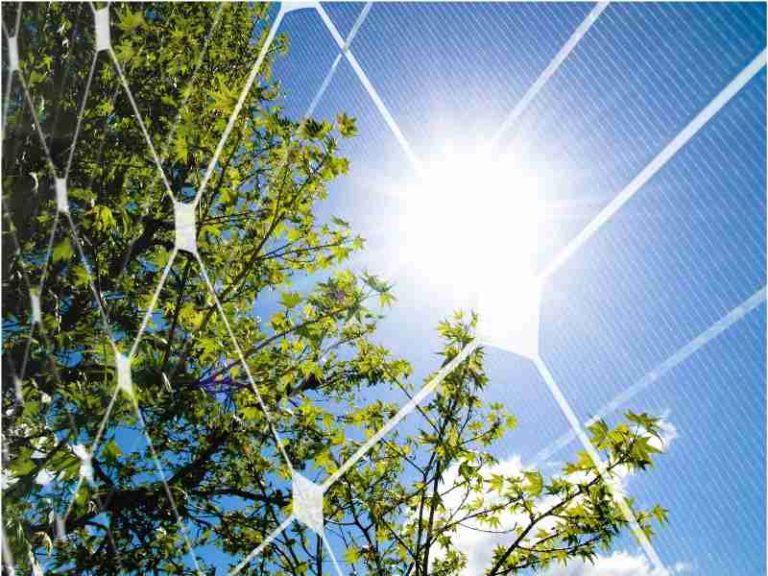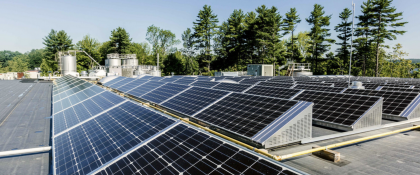
Participants at the event.
Theme: NDCs Implementation by Nations: Nigeria’s Progress
The Center for Agriculture and Climate Change was supported by the United Nations Information Center (UNIC) Lagos, in hosting the first ever Preparatory Conference of Parties (Pre-COP 24) Dialogue in Lagos, Nigeria’s and West Africa’s largest economic center. This was ahead of the UN Conference of Parties at Katowice Poland in December 2018. This event held at the United Nations Information Center, Ikoyi Lagos on November 14, 2018 and attracted participation of business, civil society and governmental actors. Nigeria has big ambition in implementing her planned programmes of action within the climate change and sustainable development goals implementation agenda.
The overriding question was, how much of Nigeria’s Nationally Determined Contributions (NDCs) have been achieved ahead of delivery and reporting time frames – 2020, 2025 and 2030. It was also critical to understand the extent to which Nigeria’s private sector (with hub in Lagos) and the rest of subnational entities have plugged into the global goal for low-carbon economic pathway. It is therefore a means to further educate people on opportunities and technologies that enable access to Climate finance, Carbon Markets as well as agro-ecological and forest governance issues.
The Dialogue objectives were:
(1) To increase awareness among Nigerians especially the private sector, civil society and the rest of subnational (state and local government) entities) on the implementation score cards of the Nationally Determined Contributions (NDCs) since Nigeria’s initialisation of the Paris Accord and submission of Nigeria’s NDCs to the United Nations Framework Convention on Climate Change (UNFCCC).
(2) It was also meant to inform these critical stakeholders and other development community actors, on Nigeria’s implementation of the NDCs in lieu of the Paris Agreement as well as other Sustainable Development Goals (SDGs) attainment milestones in Nigeria.
(3) It is meant to get policy and other stakeholders in COP negotiations to interact on the state of NDCs and SDGs in Nigeria and use appropriate stock takes into the COP24 participation. It served to bring participants to the knowledge level on Nigeria’s involvements and issues at COP negotiations across national and regional interests especially at COP 24.
The subthemes for presentations and conversation were:
(1) Nigeria’s NDCs Implementation and COP24 Expectations. A Panel also discussed Nigeria’s NDCs Performance and the future of Climate Finance and Carbon Markets in Nigeria.
Report in collaboration with key issues, observations and COP24 expectations
1. NDC Implementation and Stock-take Nigeria approved and submitted NDCs in 2015, which has since been in implementation, with a goal to reduce the business-as-usual scenarios by 2025, achieve 5 per cent per annum economic growth and 20 per cent reduction in greenhouse gas (GHG) by 2030. Other expected outcomes are the reduction in the unconditional scenarios and gas flares by 2030, while reaching a critical level in the use of energy-efficient technologies. In addition, five (5) sectoral plans are already completed while the National REDD+ Strategy is in process of design.
2. Access to Finance
There is currently $446m from the Green Climate Fund and the $10 billion Green Bond floated by Nigeria and has also received the Green Climate Fund for the Niger Delta Basin development. However, it was observed that access to climate finance has remained a major challenge for projects including those by non-state actors. A critical leg to it is that Nigeria has no Direct Access Entity to reduce the presence of bilateral and multilateral loans and grant windows that come a high interest cost. The absence of Climate Finance Strategy for Nigeria is also another major reason it is unable to access climate finance like other countries such as China, India and African countries like South Africa, Kenya and Ethiopia. Another significant factor is Nigeria’s inability to access the Transhumance Pathway Fund due to the continued conflict between farmers and cattle herders and its reportage.
3. Executive and Legislative Policy
The Dialogue observed that Nigeria just approved the ratification of the Doha amendment to the Kyoto Protocol on climate change, covering the 2013-2020 implementation period. However, the Nigeria Climate Change Bill, a key instrument to escalating the implementation actions, is yet to be signed into law. Several other policy instruments should also be operationalised to give the required big push to the Nigeria Programmes of Action implementation.
4. Capacity of state and stakeholders
The Dialogue notes that the general capacity in implementation of the NDCs is critical for meeting deadlines for delivery and reporting along the time frames of 2020, 2025 and 2030. The absence of Direct Access Entity is the first challenge affecting climate access at low or concessionary rates for projects. The capacity of Nigerian financial and development institutions to house huge sums of climate fund is also low. Capacity deficiencies were therefore a factor in the poor access to climate funds as project promoters struggle to provide bankable projects with sustainable contents, including small projects at community or grassroots level. The capacity to create and regularly operationalize the communication of national carbon budgets and results to stakeholders. Other issues are the development of Nigeria’s Country Profiling Process, Gender Action Plan and a Youth Strategy is critical to results achievement.
Strategy in COP negotiations
The Dialogue suggests that Nigeria’s participation in COP negotiations should be hinged on engaging with African and other regional Group of Negotiators – China, the Integrity and other in collaboration with interest groups, that will support Nigeria’s interests. Nigeria is also expected to take the Paris Rule Book into consensus conversations, while ensuring that its stand and roles in the Talanoa Dialogue is made known to the world. The engagement of a Consultant to design and deliver Nigeria’s first COP Pavilion, is commendable as it will enhance the showcase of Nigeria’s activities and projects implementation.
Summary of key messages and COP24 expectations
The key issues identified/noted with respect to Nigeria’s engagement at the Conference of Parties and implementation of Nigeria NDCs Implementation
(1) Some of the efforts of the government and specific milestones include:
a. Launching of the Green Bond, the 4th certified green bond in the world.
b. Nigeria’s Climate Change Law in process of presidential accent.
c. Production of Country Biennial Report
d. 3rd Annual Communication ready for launch
e. National REDD+ Strategy and forest stock taking is currently in process
f. Programme to remove Nigerian Universities from the national electricity grip to enhance their capacity for off-grid power generation using sustainable energy strategy.
Expectations
a. Expand the programme of activities in mitigation, transparency, finance, etc.,
b. The Talanoa Dialogue feedback is a useful in providing a regular 5-yearly stock-take of Parties’ collective climate action and ambition to be concluded at the COP 24.
c. Operationalizing of the Paris Rulebook and outcomes to be showcased at COP 24.
d. National final preparation /review of the Nationally Determined Contribution (NDC) 1 to kick-start the next round of (NDCs) which Parties will submit by 2020 inclusive of business, states, regions and other observers to shape and strengthen the process.
e. National Position – The Need to explore financial and technical support/opportunities and conclude collective climate actions/ ambitions from a multi-stakeholder perspective.
f. Deepening the capacity and widening the involvement of private sector to optimize opportunities in providing solutions to wide variety and complexity of climate change challenges in Nigeria particularly in renewable energy, climate smart agriculture, ecotransport, green financing, climate insurance, gender actions and other sectors.
g. Design and communication of Nigeria’s Negotiation Strategy.
Signed: Innocent E. Azih, President/ CE Center for Agriculture and Climate Change www.caccng.org






